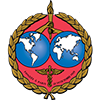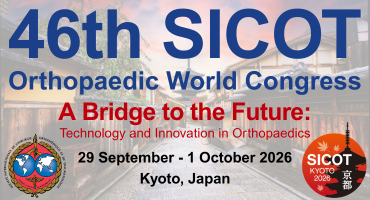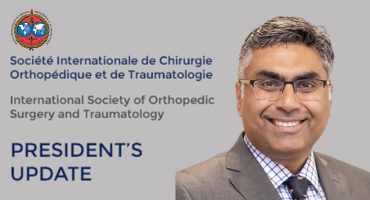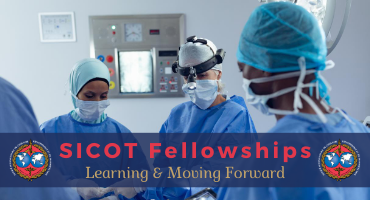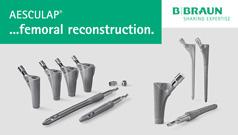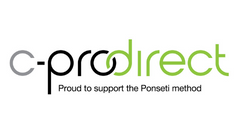Editorial
The Hippocratic Oath and Surgeon Burnout: when the doctor becomes the patient
 Temiloluwa Olufemi
Temiloluwa Olufemi
"I will attend to my own health, well-being and abilities in order to provide care of the highest standard."
-Excerpts from the 2017 Physician’s Pledge
Everyday across the world, thousands of young doctors graduate from medical school after years of rigorous training. As a tradition in most institutions, the Hippocratic Oath is recited as a symbol of dedication to a new journey of changing patients’ lives. Daily, doctors live up to the tenets of this oath, often to the detriment of their own health.
Imagine a Monday morning - the start of a beautiful week. Preop rounds, theatre, then postop rounds but somehow, you miss breakfast, plan to have a snack at lunchtime yet ‘duty calls’ and you’re standing in the operating room for hours barely making it out of the suite alive. And come Tuesday, it’s the same busy schedule all over again! Sound familiar? (or a bit exaggerated?) ……How about this: you are at the hospital before daybreak and leave at night time - never getting to see the sun most days? While this may resonate better with residents in training, attendings and programme chairs are not exempt either. Although scenarios may vary, one thing is sure - our busy routine as surgeons is a recipe for Surgeon Burnout.
The Hippocratic Oath and the Surgeon
First written around 450 B.C by a group of people including Hippocrates, the oath included the physician’s competence and dedication, with a goal to protecting and serving the best interests of each patient’s health. In 1948, it was adopted by the World Medical Association as the Declaration of Geneva and renamed the Physician’s Pledge. Several modifications of this pledge have been recited across the world to suit changing social climes. However, the core message still involved constant self-sacrifice by physicians with the patient as the central focus. In spite of its laudable intentions, could it be that the Hippocratic oath itself is major contributory factor to burnout? And if so, is there a way out?
Burnout and the Surgeon
In 1974, Psychologist Herbert Freudenberger first used and defined ‘burnout’ as, “the extinction of motivation or incentive, especially where one's devotion to a cause or relationship fails to produce the desired result” in his article titled ‘Staff Burnout’. In 1981, Christina Maslach and her colleagues at the University of San Francisco developed the Maslach Burnout Inventory (MBI), a widely accepted standard for burnout diagnosis, and described burnout characteristics as exhaustion, depersonalisation (less identification with the job) and feelings of reduced professional ability. It is a reaction to prolonged or chronic work stress caused by extreme work commitment with resultant neglect of one’s needs, feeling permanently overworked or overchallenged, being under time pressure with lots of deadlines amongst others.
Although initially used to describe the consequences of severe stress and high ideals in “helping” professions like medicine, burnout cuts across all occupations. Studies have revealed the negative effects of burnout which include headaches, prolonged fatigue, high cholesterol, respiratory and gastrointestinal problems, musculoskeletal pain, type 2 diabetes, coronary heart disease and hospitalisation for cardiovascular disorders, depression, suicide and even death. In particular, burnt out surgeons exhibit reduced job performance with resultant decrease in the quality of patient care, and absenteeism from work which culminates in loss of hospital revenue and potentially affects the national economy.
Since the discovery of burnout, several articles have been written, recommendations made to increase awareness about the negative consequences of burnout and protocols for prevention drawn which include making changes in the work environment. Unfortunately, burnout is still discussed in hushed tones in the hospital community. A gradual increase in depression and suicidal rates amongst physicians especially surgeons, coupled with substantial increase in the percentage of doctors alluding to burnout according to the Medscape Physician Lifestyle report reviews in 2013 and 2015, have led to more serious considerations for preventive and treatment measures.
Heeding a cry for help - The 2017 revised Declaration of Geneva
There have been five minimal amendments to the 1948 Physician’s Pledge, but after 70 years, the World Medical association took a bold step to make the physician’s health of utmost importance and a major revision with several modifications was adopted at the 2017 assembly in Chicago. While it still promotes the highest standard of health care for patients, genuine concern for the physician’s health was well highlighted with a new clause ‘I will attend to my own health, well-being and abilities in order to provide care of the highest standard’.
The World Health Organization (WHO) defines health as a state of complete physical, mental, and social well-being, and not merely the absence of disease or infirmity. Although surgeons are dedicated to patient care, an ideal patient - surgeon relationship is two pronged with patient satisfaction on the one hand, and surgeon gratification on the other. Health is a dynamic state, so for surgeons to give their best to patients, they must be at their best as well.
The 2019 Medscape National Physician Burnout, Depression & Suicide Report, reviewed over 15,000 physicians across 29 different specialties and results showed that 62% of physicians worked more than 51 hours a week but only 29% were happy with their work, 38% of orthopaedic surgeons were burnt out and only 22% were likely to seek help. Generally thought to be a ‘disease’ of the surgeon especially junior doctors in a rigorous surgical training programme, the WHO in its May 2019 International Classification of Diseases (ICD-11) manual has officially listed burnout as an “occupational syndrome” but this will only take effect in January 2022.
We are empathic, oath bound and wired to always go the extra mile for our patients (almost like superheroes). But there is probably a good reason Marvel Studios is yet to create a superhero in white coats or scrubs because at best, we’re only human and ‘working’ human surgeons are prone to burnout and its attendant consequences. So, let’s heed this new clause and ‘take care of our own health’.
- Arora M, Diwan A, Harris I. Burnout in orthopaedic surgeons: A review. ANZ journal of surgery. 2013;83:512-5. DOI: 10.1111/ans.12292.
- Dimou FM, Eckelbarger D, Riall TS. Surgeon Burnout: A Systematic Review. J Am Coll Surg. 2016;222(6):1230–39. Doi: 10.1016/j.jamcollsurg.2016.03.022
- https://www.forbes.com/sites/forbescoachescouncil/2018/04/18/how-a-doctors-hippocratic-oath-can-lead-to-their-own-burnout-and-the-emerging-solution/#30b5ffb84b4f
- Clark SA. The Impact of the Hippocratic Oath in 2018: The Conflict of the Ideal of the Physician, the Knowledgeable Humanitarian, Versus the Corporate Medical Allegiance to Financial Models Contributes to Burnout. Cureus. 2018;10(7): e3076. Doi: 10.7759/cureus.3076
- https://www.aafp.org/fpm/2015/0900/p42.html
- https://www.medscape.com/slideshow/2019-lifestyle-burnout-depression-6011056?faf=1#24
